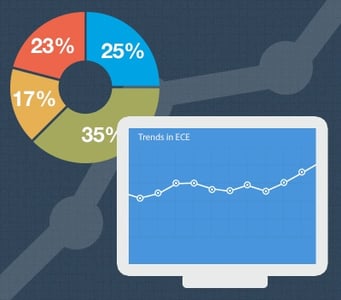
Being a Teachstone Ambassador.
Back in March, I was given an extraordinary opportunity to connect with Teachstone via its Ambassador initiative. What’s particularly exciting is the notion of engaging with an organization and others that share my passion and dedication to improving the professionalism of early care and education teachers. The results of the dialogue among the Teachstone team, other Ambassadors and I will be far-reaching, touching our respective audiences across the profession in a meaningful and positive way.
Data is important. Why else would we have so many assessment tools?
In my first Teachstone Ambassadors meeting, which took place during the National Head Start Association National Conference in Washington, D.C., last month, much discussion evolved around data-driven professional development among early childhood educators. My learned colleagues pontificated on the merits of Teachstone’s CLASS (Classroom Assessment Scoring System), the revised versions of ECERS (Early Childhood Environment Rating System) and ITERS (Infant/Toddler Environment Rating System) and our own CDA (Child Development Associate™ National Credential Program).
Briefly, the CDA assessment process involves six competency standards, within which there are 13 functional areas that CDA Candidates must demonstrate competency:
- Establishing and maintaining a safe, healthy learning environment
- Advancing physical and intellectual competence
- Supporting social and emotional development, and providing positive guidance
- Establishing positive and productive relationships with families
- Ensuring a well-run, purposeful program responsive to participant needs
- Maintaining a commitment to professionalism
With some variations in scales and subscales CLASS and ITERS each attempt to measure how best to maximize the interactions among ECE teachers and the children in their charge.
We know that data-gathering is important. If we want to keep striving to unify and professionalize the field, we must gather the information that reflects competency and suitability for each setting—from Infant-Toddler to Pre-School to Family Child Care—among those within the early childhood education community.
Numbers? Is it just about the numbers?
No.
Data-gathering to establish professional competency is about more than harvesting numbers. It’s also about professional competency as reflected through multiples sources of evidence. In addition to the requisite number of education and experience hours (120 and 480, respectively), our CDA Candidates must undergo a structured observation process over time that includes coaching and mentoring from Council-trained contractors (known as Professional Development Specialists), and construct a professional portfolio that includes input from students’ family members.
Oh, wait! There’s one other thing: standardization.
Gathering data and putting it to good use is one thing. It’s quite another when professional development standards and measurements of competency at the state and federal level don’t align. As you are undoubtedly aware, 35 states are currently implementing a Quality Rating and Improvement System (QRIS). But, did you know that the CDA is embedded in nearly half of those state systems? At their core, QRIS systems and the CDA have the same purpose: to define and advance the quality of the early educator, the programs in which we work, and the field as a whole. Thus, the Council is leading a charge to partner with other QRIS states on a path of continuous quality improvement.
Through these efforts, we not only value the data collection process, we add value to the outcomes.
 Valora Washington, PhD., is the president and CEO of the Council for Professional Recognition since January 2011. She previously served as a board member of Wheelock College, and as a professor at Antioch College, Howard University and the University of North Carolina at Chapel Hill. Dr. Washington co-founded several organizations, including Voices for Michigan’s Children, the Early Childhood Funders Collaborative; and The CAYL Institute. She has been co-chair of the Massachusetts Governor’s School Readiness Commission; board chair of Voices for America’s Children; secretary of NAEYC; chair of the Black Caucus of the Society for Research in Child Development; and co-chair of the National Head Start Association Commission on 2010.
Valora Washington, PhD., is the president and CEO of the Council for Professional Recognition since January 2011. She previously served as a board member of Wheelock College, and as a professor at Antioch College, Howard University and the University of North Carolina at Chapel Hill. Dr. Washington co-founded several organizations, including Voices for Michigan’s Children, the Early Childhood Funders Collaborative; and The CAYL Institute. She has been co-chair of the Massachusetts Governor’s School Readiness Commission; board chair of Voices for America’s Children; secretary of NAEYC; chair of the Black Caucus of the Society for Research in Child Development; and co-chair of the National Head Start Association Commission on 2010.

